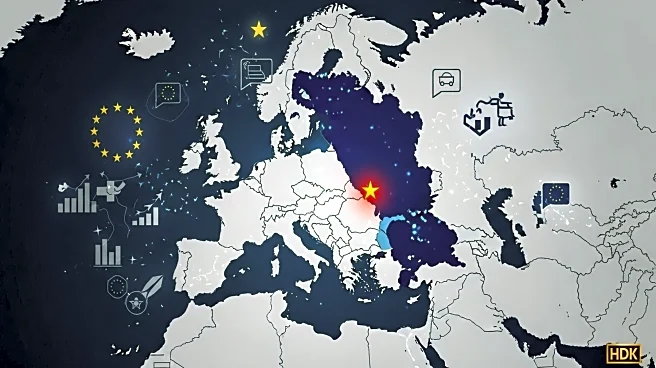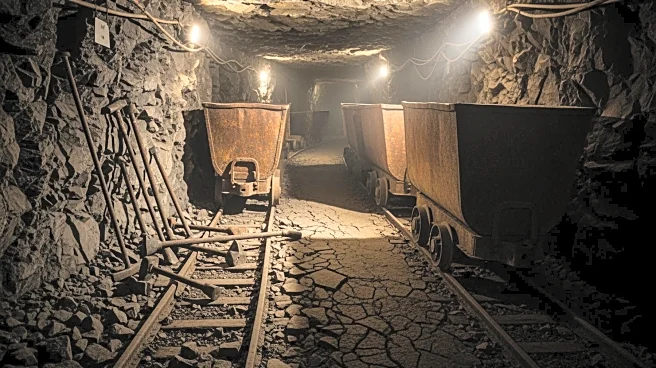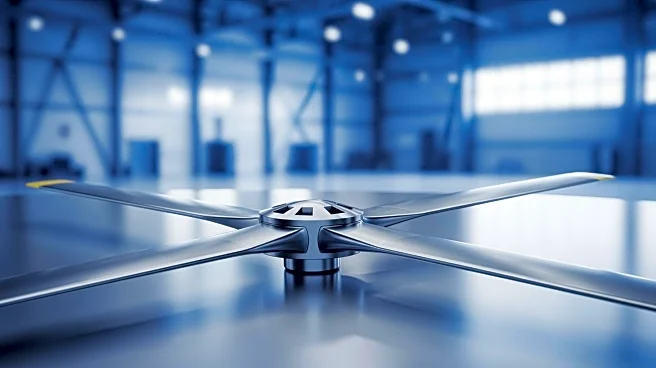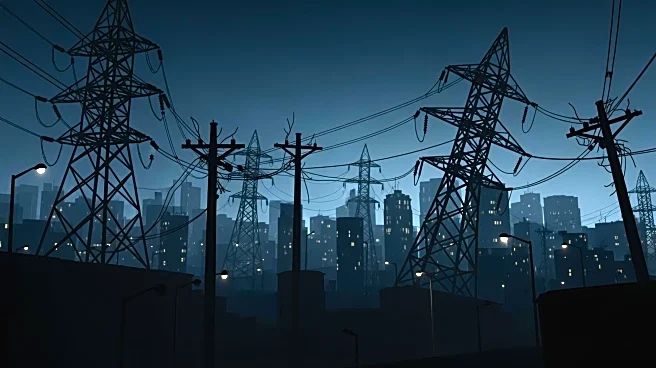What's Happening?
Moldova's ruling Party of Action and Solidarity (PAS), which supports closer ties with the European Union, has emerged victorious in the recent parliamentary elections. According to preliminary results, PAS secured 40% of the votes, positioning itself ahead of the pro-Russian Patriotic Bloc, which garnered 31.5%. This election is seen as pivotal for Moldova's future direction, either towards European integration or maintaining closer ties with Russia. PAS lawmaker Radu Marian expressed that the victory represents a triumph for democracy and progress across Europe, emphasizing the party's stance against Russian influence. Daniel Voda, a government spokesperson, highlighted the election as a celebration of democracy, reflecting the Moldovan people's desire for peace and development within the European Union framework.
Why It's Important?
The election results are significant as they indicate Moldova's potential shift towards European integration, which could have broad implications for the country's political and economic landscape. A pro-EU government may lead to increased cooperation with European institutions, potentially bringing economic benefits and political stability. This shift could also impact Moldova's relationship with Russia, as the country navigates its geopolitical position between two major powers. The outcome may influence regional dynamics, affecting neighboring countries and the broader European Union's strategy in Eastern Europe. Stakeholders such as businesses, political leaders, and civil society groups will be closely monitoring the developments as Moldova's alignment with the EU could open new opportunities for trade, investment, and diplomatic relations.
What's Next?
Following the election, Moldova is expected to pursue policies that align more closely with European Union standards and practices. This may involve reforms in governance, economic policies, and legal frameworks to facilitate integration. The government will likely engage in negotiations with EU officials to strengthen ties and explore membership possibilities. Meanwhile, the opposition, particularly the pro-Russian Patriotic Bloc, may challenge the results or push for policies that maintain Russian influence. International observers and stakeholders will be watching for any shifts in Moldova's foreign policy and domestic reforms. The outcome could also prompt reactions from Russia, which may seek to reinforce its presence in the region.
Beyond the Headlines
The election results could have deeper implications for Moldova's cultural and social landscape. A move towards European integration may influence cultural exchanges, educational opportunities, and societal values, fostering a more open and diverse environment. Additionally, the shift could impact Moldova's energy policies, as the country may seek to reduce dependency on Russian energy supplies and explore sustainable alternatives. The long-term effects of this political shift could redefine Moldova's identity and role within the European context, potentially serving as a model for other countries in the region facing similar geopolitical choices.








